The best new albums this week
From Afrobeat to post-punk and beyond, the thrills and spills of this week’s album deliveries
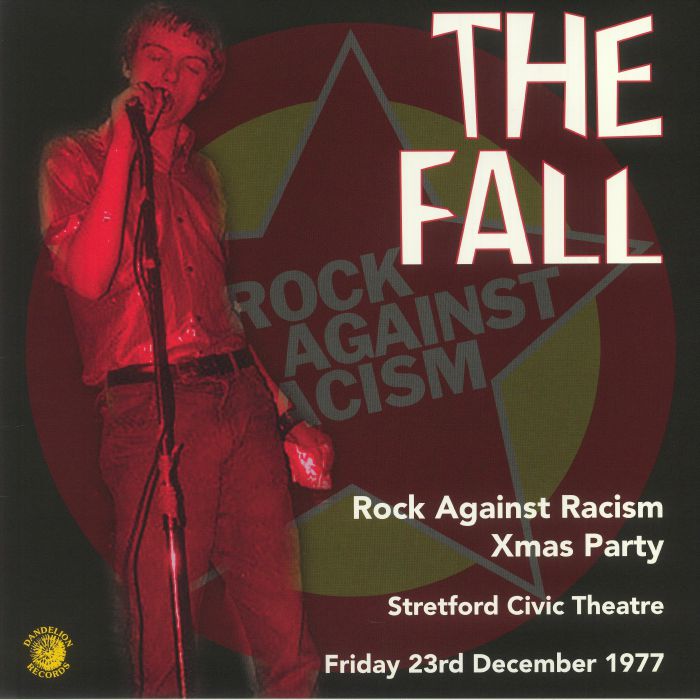
ALBUM OF THE WEEK
The Fall – Rock Against Racism Christmas Party 1977 (Ozit Dandelion)
Things may seem pretty good right now in the south Manchester suburb of Stretford. Around 15 minutes from the city-proper by tram, it was recently ranked by The Sunday Times as one of Britain’s best places to invest in property thanks to the excellent transport links, solid schools, impending town centre re-design and gradual influx of independent bars and eateries. And this is before we come to a permanent community takeover of the subtly spectacular Public Hall, which is where this album was recorded.
Beneath the veneer of a booming housing market and increasing levels of cool, though, all isn’t necessarily that well in the district. Like the rest of the UK, locals are troubled by a number of conversations in the country’s political and media spaces that suggest we may well be on a direct course back to the late-1970s — when Rock Against Racism events were taking place. Brainchild of The Northern Carnival Against the Nazis, 1978’s Mancunian edition mirrored an event in London and attracted 40,000 people to Alexandra Park, a short hop, skip, or bus ride from Stretford, where The Fall played this gig for the movement the previous winter.
Punters were drawn by the music, of course, but more importantly a real urgency to address societal divisions threatening to tear the nation apart. This, after all, was building towards 1978-79’s Winter of Discontent, a period characterised by strikes across public and private sectors over pay caps imposed by a Labour government, set well-below skyrocketing levels of inflation. The fact this came in the wake of a three-day week introduced by the Conservatives in a bid to tackle an energy crisis resulting from industrial unrest explains how many issues people wanted someone to blame for.
How fitting, then, that The Fall’s politically charged show, which looked to refocus anger on successive policymakers that had run the British economy into the ground, should reappear on the release schedule 24 years later. A quick scan through the current news agenda reveals myriad problems once again face the UK — workforce shortages, collapsing supply chains, rising inflation, and the relocation of businesses to country’s that still boast E.U. membership and therefore single market access. More so, ours is also an era in which the impact of consistent blame games targeting the most vulnerable in society — including refugees, economic migrants, and people on state benefits — is impossible to ignore. Racism and xenophobia are either on the rise again, or simply more open and acceptable. Either way, here’s hoping the messages here still resonate: inclusion, cohesion, empathy, understanding and strength in numbers, rather than distrust, hatred, and isolationism.
History lesson done, the album is also a staunch reminder of what an incredible, innovative, and groundbreaking lot Mark E. Smith and The Fall were, are, and always will be. Dead or alive, theirs is a raw, pared back sound that emphasises the punk in post punk, maintaining a consistently tense, brooding atmosphere even when tracks seem to implore you to pogo. It’s wrought iron frustration that also comes with a steadfast sense of resilience and determination. The kind of tones that could only have been born in this part of the world at this particularly hopeless point in time. And, by the same logic, a record that can’t help make you wonder why, given the current state of play, UK guitar music seems so rarely concerned with flashing its fangs, flexing its muscles, and biting back against an establishment which, only last year, proved beyond all reasonable doubt its utter disdain for artistic industries and communities.
MH
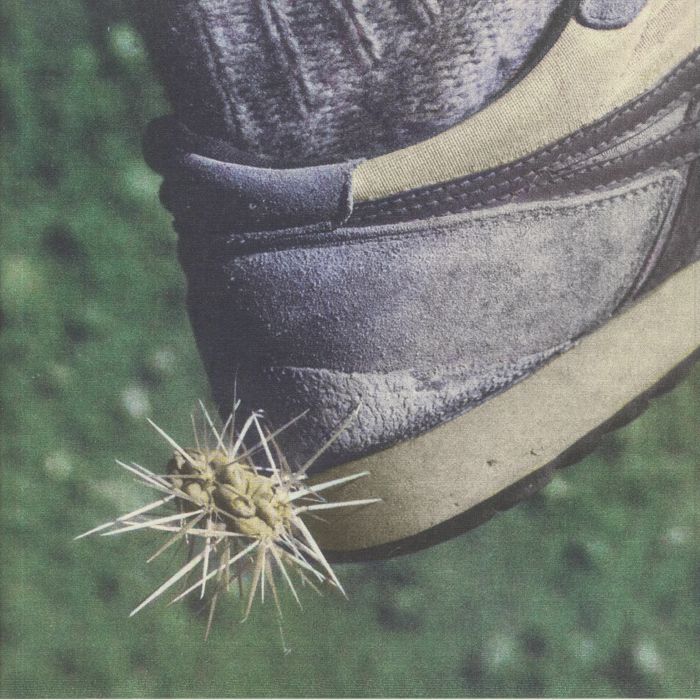
Ross From Friends – Tread (Brainfeeder)
2021 has been a huge year for dance and electronic music: perhaps one of the most significant since the all-or-nothing, everything-must-go era that marked the turn of the millennium. We’ve seen an abundance of exceptional records land, both long and short form. Some because the previous 12 months saw most of the world confined to houses, and therefore home studios, others simply because they were finally ready after a significant amount of time in the making.
Aside from the soundtrack, many of us have finally been allowed back inside the right environments to experience those noises. The reopening of clubs in Britain, the US, and many parts of Europe was among the most divisive decisions states have taken since initially being forced to pick between economics and public health, resulting in a combination of joy, guilt, anxiety, nihilism, and sense of shared responsibility. Musically, in many corners things have been resoundingly rave-y, with full-throttle energy exuding from booths and floors alike as people look to celebrate what they’ve missed by throwing themselves headfirst into the dance.
By comparison, the second album from Ross From Friends looks to offer an opportunity to reflect, while still committing to the party. Shades of trance-y house (‘Revellers’, ‘Love Divide’), ghostly dubstep (‘Grub’), and melancholic garage (‘The Daisy’), ring clear as day within the first few tracks alone, while the entire record seems cast in the darkness of early night, yellow hues of streetlights twinkling against rain-soaked taxi, train or bus windows. It’s an atmosphere that only becomes more pronounced the deeper you tread (ahem), whether you venture into the loose fours and monumental synth lines of ‘Run’, or the warm, ambient chimes on ‘Morning Sun In A Dusty Room’. Deceptively impactful thanks to its quiet confidence.
MH
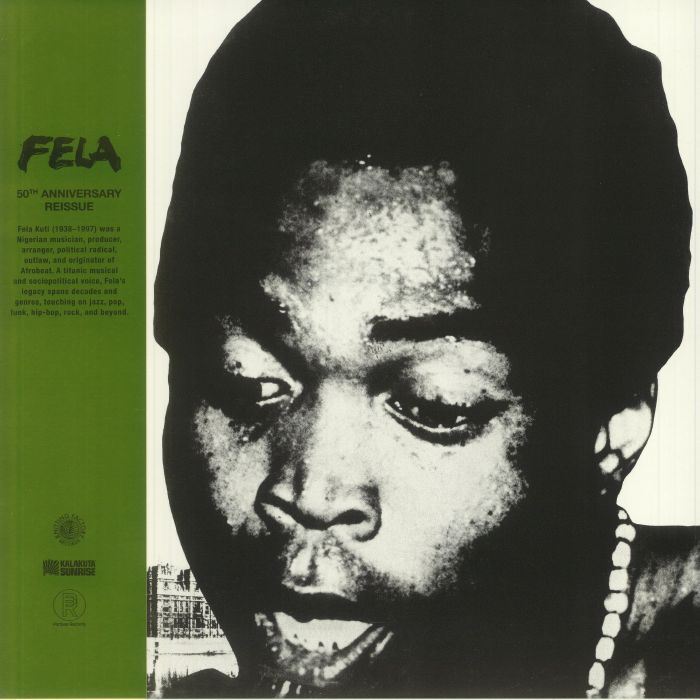
Fela Kuti – Fela’s London Scene (Partisan)
It’s been identified as a major milestone in the unarguably significant and influential career of Nigerian multi-instrumentalist, bandleader, composer, political activist, and Pan-Africanist, Fela Kuti. But while lauded for its musicality, the back story behind Fela in London is perhaps what’s most captivating and revealing about why these five tracks are so important.
In 1971, EMI — the label Kuti was signed to — agreed to finance a series of studio sessions in London. The artist’s relationship with the UK capital is well documented, it’s here he received musical training, while time spent in and among the city’s club scene had provided him with a different, but no less life-changing type of cultural education. Both experiences would be instrumental in his approach to music and performance after returning to his homeland, helping him become established as one of the 20th Century’s most vital performers, essential songwriters, and astute arrangers.
Visiting London again, this time as a name very much on the rise and ready to blow up in Europe properly, he would set up shop at the world-famous Abbey Road facility to lay down this quintet of gems. It’s also worth pointing out that by this point he was friends with Cream member Ginger Baker, who not only appears on this album (uncredited), he also played a big role in Kuti being booked for some of the coolest venues at the tine, such as The 100 Club and Four Aces. Those live dates helped drive momentum ahead of Fela’s London Scene being released, and shaped at least a little of what’s here. Which can only be described as benchmark setting Fela — from the anti-colonial mission statement of ‘Buy Africa’ to the epic groove-r ‘J’ehin J’ehin’, a 13-minute triumph featuring the late, great percussionist, Tony Allen.
MH
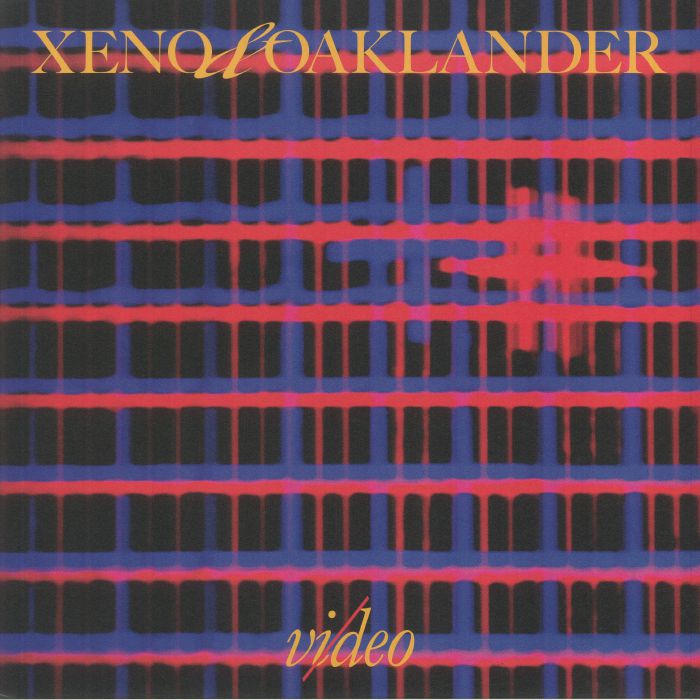
Xeno & Oaklander – Vi/Deo (Dais)
The seventh full-length from esteemed minimal wave duo Xeno & Oaklander is said to have been conceived in isolation at their home studio in Southern Connecticut during the pandemic. Naturally, themes of streaming, remote work and obsolescent technologies were a major influence on the “cinematic strain of technicolor fantasy” they present on Vi/deo, whichsees the pair return to Los Angeles-based Dais Records.
Exploring sound as colour, their retro futuristic style is the perfect continuation of 2019’s Hypnos, with more of a pop-oriented sound that’s contrasted by an undeniable melancholia. That being said, they still explore various moods throughout the album; the French disco vibe of third single ‘Afar’ drifts into the sort of noir fantasy heard on ‘Gain’ which is one of the more upbeat offerings with a slight electro bounce to it, as well as slow and breezy numbers like “Movie Star” with its bittersweet lyrical theme, and the neon-lit nightmoves of closing track “Raingarden”.
Benefitting once again from a pristine style of production which revels in the pure voltage of the analogue synthesis throughout, Liz Wendelbo’s mix of English and French lyrics are sung in a way in which she tried to imitate a choirboy, with Sean McBride occasionally lending his signature deadpan vocal. Vi/deo certainly doesn’t deviate too much from their regular well-honed formula, and that’s a good thing.
MS
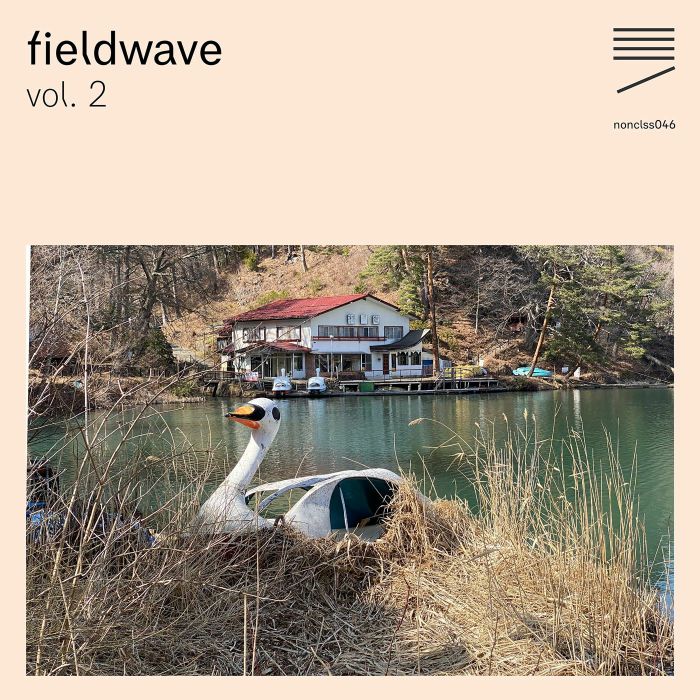
Various – Fieldwave Vol. 2 (Nonclassical)
Make field recordings cool again. That’s the campaign slogan of broadcaster, sound collector and Nonclassical’s A&R Nick Luscombe, whose efforts of late have been dedicated to bringing together artists who incorporate field recordings into their music.
It’s no coincidence that this album, like 2020’s first edition, should exist in a time when most electronic and sound artists always include some layer of real texture in their work. And fitting for renewed interest in ‘environmental music’ from the country, Luscombe, in his own words, “decided to look to Japan as inspiration – surely one of the most sonically rich places on earth.”
Japanese artists dominate this rich, dense and vivid scene-conjurer’s comp. Sonic folkloric master Sugai Ken opens it up: ‘Track 01’ ups the low end on the sound of trickling water by a roadside, shedding truer light on this universally recognised sound. Most tracks, though, are musically fleshed out. Midori Hirano’s ‘Tracing Dreams’ is a daytime horror soundtrack dirge, blending deep picnic soundscapes with trilling piano.
Meanwhile, Dissolving Path’s ‘Water Dragon’ is an ominous ward against mythical reptiles; drones drone, droplets drip, and wyvernal bonfires burn. The sounds on this album paint such a vivid imagining of Japan’s culture and mythology that no two tracks seem to evoke the same scene, making it very easy to remember each track. By the end (‘Shinto Blessings’ by Max Reinhardt), we’re deep into the ritual drama of religious chants and drums.
JIJ
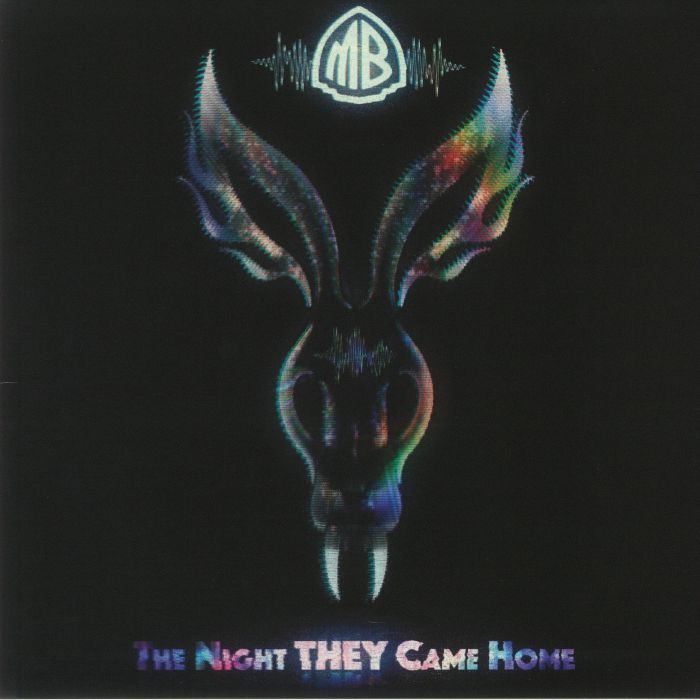
Mr. Bungle – The Night They Came Home (Ipecac)
When vocalist/label-head/voice actor/frontman extraordinaire Mike Patton revealed that Mr. Bungle were set to reunite, you could almost sense the pandemonium stifling the fanboy air.
Upon closer inspection (and in total Patton fashion), the initial run of comeback shows specifically stated this particular reunion would see the band performing their original demo, ‘The Raging Wrath Of The Easter Bunny’ in its entirely, with a set centred around exploring the group’s thrash metal origins.
Many were dismayed as this meant not so much as a snifter of a thought would be paid to any of their avant-garde jazz-rock genre mutilations, essentially omitting material from all three studio albums.
For those willing to go along for the ride and be thankful that Bungle is back in any way, shape or form, it was quite the bizarre ordeal. Enlisting thrash icons Scott Ian of Anthrax and Dave Lombardo of Slayer on fretboard mangling (guitar) and skin abrasions (drums) respectively, was an inspired decision, taking the most seasoned and influential veterans of the genre to help close the circle between the unassuming thrash beginnings and subsequent revival of Mr. Bungle.
Following the tour success, last year saw the thrashed-up Bungle 2.0 drop an entire reworked, re-imagined, re-recorded version of their ‘Raging Wrath…’ demo as a full-fledged album. With little to no opportunity to tour the material, however, Patton and his cohorts opted for a compromise in the form of a livestream turned live album.
‘The Day They Came Home’ serves as a crisp, fly on the wall earful into the world of the techy, thrashy dynamics the band has stringently based their rebirth around.
Cuts like ‘Sudden Death’ and ‘Eracist’ explode with even more fury when experienced in a live setting, while the bevy of covers from the likes of Slayer (‘Hell Awaits’) all the way to Mr. red sweater sporting Rogers (‘Won’t You Be My Neighbor?’) provide an informative highlight reel insight into the early and bizzaro influences that put Bungle on their unique, unfettered, perplexing path.
When vocalist/label-head/voice actor/frontman extraordinaire Mike Patton revealed that Mr. Bungle were set to reunite, you could almost sense the pandemonium stifling the fanboy air.
Upon closer inspection (and in total Patton fashion), the initial run of comeback shows specifically stated this particular reunion would see the band performing their original demo, ‘The Raging Wrath Of The Easter Bunny’ in its entirely, with a set centred around exploring the group’s thrash metal origins.
Many were dismayed as this meant not so much as a snifter of a thought would be paid to any of their avant-garde jazz-rock genre mutilations, essentially omitting material from all three studio albums.
For those willing to go along for the ride and be thankful that Bungle is back in any way, shape or form, it was quite the bizarre ordeal. Enlisting thrash icons Scott Ian of Anthrax and Dave Lombardo of Slayer on fretboard mangling (guitar) and skin abrasions (drums) respectively, was an inspired decision, taking the most seasoned and influential veterans of the genre to help close the circle between the unassuming thrash beginnings and subsequent revival of Mr. Bungle.
Following the tour success, last year saw the thrashed-up Bungle 2.0 drop an entire reworked, re-imagined, re-recorded version of their ‘Raging Wrath…’ demo as a full-fledged album. With little to no opportunity to tour the material, however, Patton and his cohorts opted for a compromise in the form of a livestream turned live album.
‘The Day They Came Home’ serves as a crisp, fly on the wall earful into the world of the techy, thrashy dynamics the band has stringently based their rebirth around.
Cuts like ‘Sudden Death’ and ‘Eracist’ explode with even more fury when experienced in a live setting, while the bevy of covers from the likes of Slayer (‘Hell Awaits’) all the way to Mr. red sweater sporting Rogers (‘Won’t You Be My Neighbor?’) provide an informative highlight reel insight into the early and bizzaro influences that put Bungle on their unique, unfettered, perplexing path.
ZB

Gnod – La Mort Du Sens (Rocket Recordings)
Talk about nail hitting head. Salford, Greater Manchester troupe Gnod have always concerned themselves with music thick with intertextuality and opportunities to find meaning, rarely opting to deliver a record that’s what people expected, but rather packing a multitude of influences and ideas into things so as to leave interpretation and labels up to the beholder. By comparison, La Mort Du Sens is a different beast entirely, or at least it is in title.
Translated as The Death of Meaning, the resolutely artsy outfit — whose oeuvre spans experimental metal, math rock, post punk, and Krautsomething — have perfectly summarised the collective experience of 2020 and 2021 without actually setting out to do so. It’s a visceral, taut, lo-fi-meets-sound-wall beast that was written before The Big P hit Britain, inspired instead by the madness of post-referendum, mid-Trump years in which logic seemed to have long-since left the building. Perhaps most importantly, though, it’s an extension of sounds they have been slowly forging and perfecting since 2017, filled with razor sharp riffs, brooding menace and tangible sense of aural confrontation plucked straight from the glory days of punk, here rendered through a more avant-garde lens.
MH
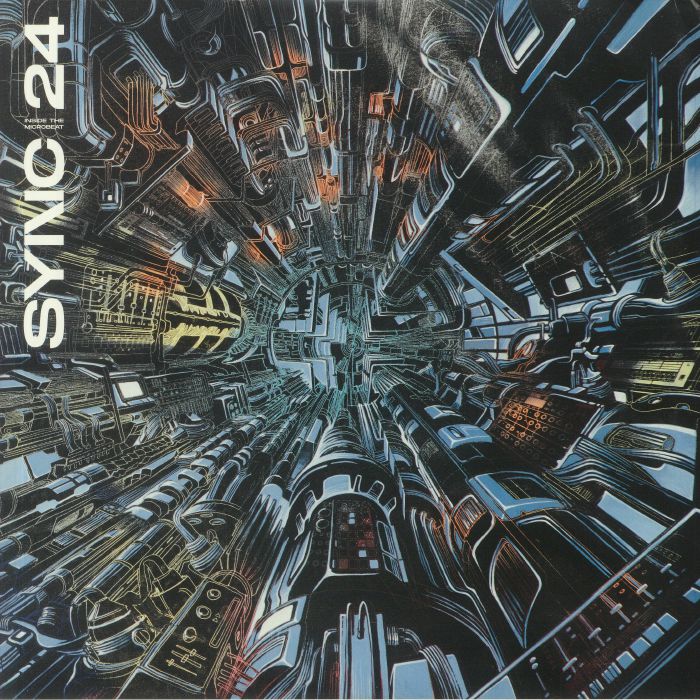
Sync 24 – Inside The Microbeat (Cultivated Electronics)
Phil Bolland is one of the key figures in UK electro and its current renaissance. At the helm of Cultivated Electronics he’s helped platform the genre and die-hard producers hell bent on wringing as much funk out of their machines as possible. He was of course doing this many moons ago, when electro was a strictly underground preserve, but he’s been savvy to the moment and run an impressive salvo of singles over the past couple of years. Electro royalty like The Advent, Anthony Rother, DMX Krew, The Hacker, Morphology and so many more have all passed through, but now it’s the turn of Bolland himself under his own Sync 24 alias to extol the virtues of vintage synthesis and body-poppin’ drum programming.
Inside The Microbeat is an electro album made by someone wholly entrenched in the sound, but it’s far from one-dimensional. From the 80s synth-noir of opening track ‘Oriental Sunset’ to the densely packed creep of the title tune, you can hear Bolland exploring different textures and moods on every single track. As such, it’s an album which doesn’t dull, with the narrative of each piece twisting according to Bolland’s whims. There is an over-arching sense of dystopia binding the album together though – the jarring synth flares on ‘The Arrival’ and the delirious phrase coursing through ‘Haunt Times’ are certainly not trying to paint a sunny picture of our technological future. But it’s also a vibrant render, loaded with detail and flair, expressing vivid ideas to bring something fresh and worthwhile to a genre which has been solidly caned for the past few years.
OW
This week’s reviewers: Mike Sheehy, Zach Buggy, Martin Hewitt, Jude Iago James, OIi Warwick.